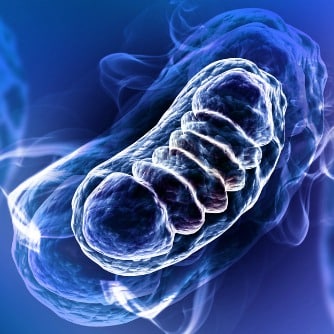Controlling inflammation can have huge implications when it comes to the treatment of numerous diseases. Efforts to understand and control inflammation are complex and ongoing. Interestingly, breaking research discovered how macrophages play a role in turning mitochondria into chemical-producing and toxic promoters of inflammation.
Inflammation is the way the body tries to protect itself against harmful stimuli and is an essential part of the immune system. Severe inflammation is an aspect of many aging-related diseases, and the lifelong accumulation of molecular damage resultant from chronic inflammation has been suggested to serve as a major contributor to the process of aging.
Mitochondria are present in nearly all cell types and generate the major part of the cells’ adenosine triphosphate (ATP), the primary source of the cells’ chemical energy. They are responsible for generating the energy that the cells need to conduct their work. As many as 30% of all cancers employ mitochondria, the powerhouses inside cells, to create an environment that is conducive to tumor growth.
Macrophages are white blood cells that are “biological dustbins” that engulf and digest foreign substances and cellular debris, destroy pathogens, stimulate the immune system to action when needed, and promote inflammation when the body needs it to help prevent further damage. When the time comes for the inflammatory response to end, they normally switch and suppress inflammation and help to repair damaged tissue.
However, the inflammatory response can instead go awry and cause diseases and damage to healthy tissue during diseases such as arthritis, inflammatory bowel disease, septic shock, periodontitis, and some cancers. They must be tightly controlled.
The research came from a team of scientists from the Trinity College Dublin’s Inflammation Research Group who joined forces with other researchers from the United Kingdom’s Medical Research Council Mitochondrial Biology Unit and seven other institutions from throughout Europe to take this fresh look at macrophages’ role in inflammation.
The researchers discovered that during the original response of the macrophages, the cells change the mitochondria‘s activity, which is the key energy generator in the cells. During inflammation, macrophages halt mitochondria’s production of energy and switch them to the production of toxic compounds that promote and amplify inflammation. The scientists’ hope is that this new knowledge may help to generate interventions that can mute this toxic response. If it can somehow be controlled, it could minimize tissue damage. Preventing this process would turn the macrophage into a benign anti-inflammatory cell and would hopefully calm down inflammation.
A swiftly-growing new area of specialty study is immunometabolism that looks at what exists between the metabolic responses and the immune system and creates a better understanding of the complexities of inflammation. The end goal is to design therapeutic approaches that should assist in the treatment of diseases that are difficult to manage.




